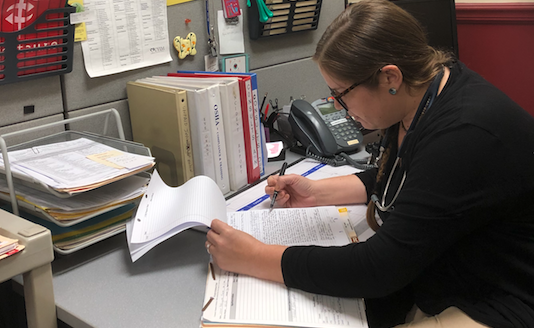Career Resources
Negotiating Your Contract
Protect yourself personally, professionally, and financially – know how to negotiate a strong contract that works for you.
Preparing for Contract Renegotiation
In this article, the PA Career Coach explores the topic of contract renegotiation and advises you on how to approach you employer about improving your existing agreement.
PA Administrators
PAs in administration utilize leadership and management competencies above and beyond their clinical skill set to positively affect patient care; they are aspiring or current experts in the business of medicine, revenue cycle management, quality improvement, health information technology, and compliance. AAPA supports PA administrators by offering opportunities to acquire skills and knowledge.
Beyond Your Day Job: Career Advancement via Side Gigs
Join PA Shayne Foley, co-founder of The PA Blueprint, LLC, in this interactive webinar that explores side gigs for PAs. Attendees can earn 1.0 AAPA Category 1 CME credit.
Contract Assessment and Negotiation Checklist
It’s important to negotiate a contract that empowers you, fits your needs, and protects you. The checklist can help you assess an employer’s contract and identify areas for negotiation.
Tips for Contract Negotiation, Using the AAPA Salary Report
Every day, PA Career Coach Jennifer Hohman uses the AAPA Salary Report to help her clients negotiate their employment contracts. In this article, Jennifer shares how she leverages the Salary Report for her client’s benefit.
Contract and Salary Negotiations
: You’ve landed your first PA job – now it’s time get the salary and perks you want! PA educator James R. Kilgore, DMSc, PhD, PA-C, DFAAPA, shares tips and tricks for negotiating the terms of your contract.

Your Top 5 Career Questions Answered by the PA Career Coach
Jennifer Anne Hohman, the PA Career Coach, answers the top five questions we heard from PAs this year. She offers her expert advice on asking for a raise, negotiating (and renegotiating) your salary, how to land a job as a new grad, and more.

Q&A with PA Leader Clair Kuriakose
Clair Kuriakose, MBA, PA-C, is a high achiever. She sets goals for herself, achieves them, and then strategically lays out her next steps. She finished PA school, got her MBA and Lean Six Sigma certification, and now leads advanced practice providers at Stanford Health Care.

A Day in the Life of PA Faculty and Clinician
Nicole S. Cournoyer, PA-C, faculty member at Thomas Jefferson University, started her career in a community-based oncology office. Teaching patients and family members about disease processes, medications and interventions led to lecturing then teaching full-time at her alma mater.

4 Non-Salary Negotiations PAs Need to Consider
For most professionals, the words “negotiate” and “salary” often go hand-in-hand. But when employers can’t increase your salary offer, you may find them willing to increase or improve other areas of the benefits package to entice you to work for them.

Sponsored
3 Ways PAs Can Advance Their Careers Through Leadership
For PAs looking to grow in their careers, there are also many opportunities to become a true leader in your field — either directly or through thought leadership. Here are three ways to advance in your career and become a leader.

Looking for a Non-Clinical Role? Consider Medical or Clinical Science Liaison
PAs who serve as medical and clinical science liaisons play a unique role in pharmaceutical and other medical organizations. They use their clinical skills to interpret clinical trials, medications’ chemical composition, safety matters, and help to educate clinicians.

Anatomy of a Contract
Use our interactive tool to familiarize yourself with a contract. We’ve outlined the key elements typically found in PA employment contracts and offered some advice on what to expect, ask for, and be wary of in each section.

PA, Leadership Consultant, Career Expert: Meet Andrea Lowe
Andrea Lowe, MHA, PA-C, has a lot of ideas about raising PA public awareness and increasing career opportunities for PAs. Lowe practiced as a PA in emergency medicine and then transitioned to increasingly visible leadership roles.

